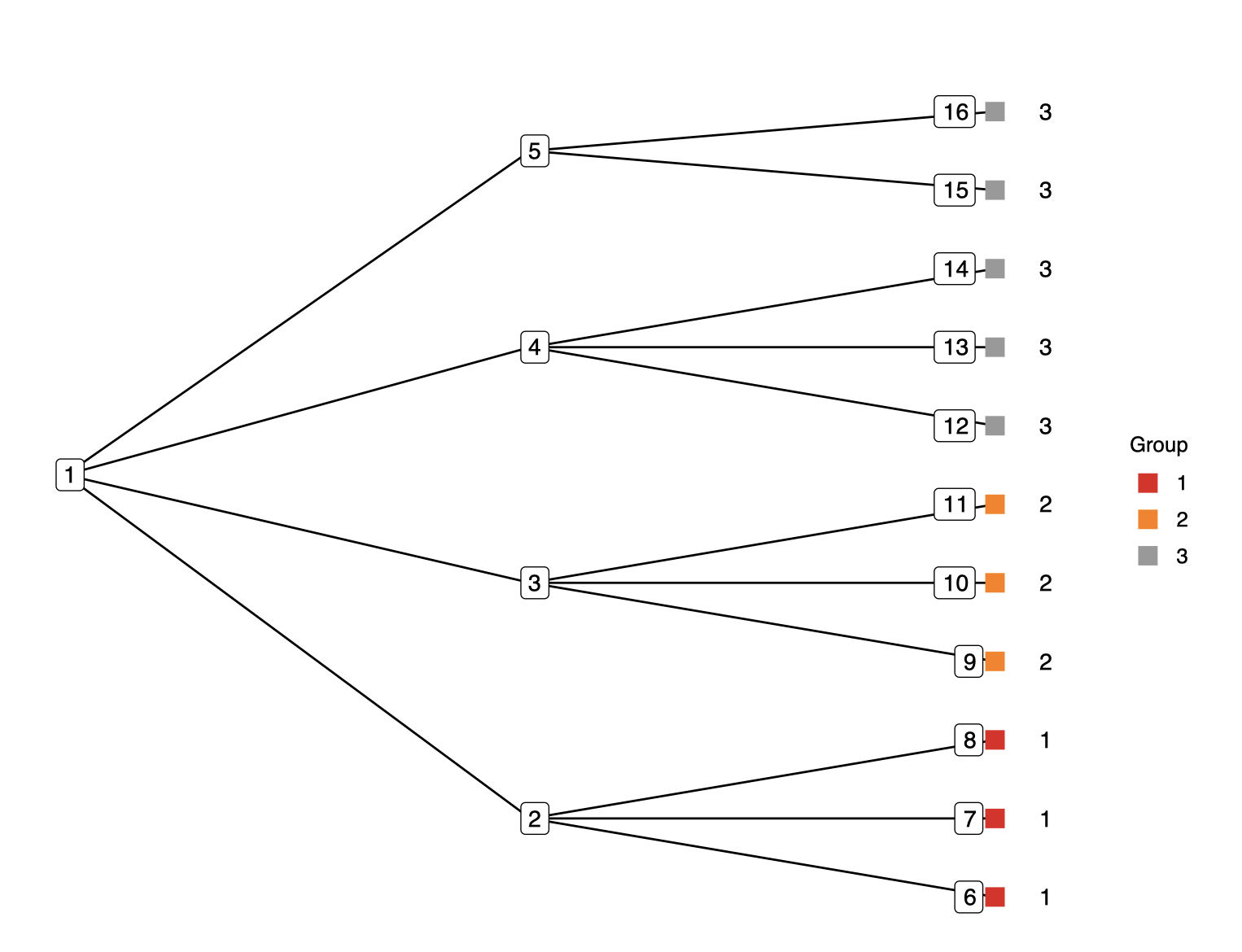Abstract
This paper is concerned with using multivariate binary observations to estimate the proportions of unobserved classes with scientific meanings. We focus on the setting where additional information about sample similarities is available and represented by a rooted weighted tree. Every leaf in the given tree contains multiple independent samples. Shorter distances over the tree between the leaves indicate higher similarity. We propose a novel data integrative extension to classical latent class models (LCMs) with tree-structured shrinkage. The proposed approach enables 1) borrowing of information across leaves, 2) estimating data-driven leaf groups with distinct vectors of class proportions, and 3) individual-level probabilistic class assignment given the observed multivariate binary measurements. We derive and implement a scalable posterior inference algorithm in a variational Bayes framework. Extensive simulations show more accurate estimation of class proportions than alternatives that suboptimally use the additional sample similarity information. A zoonotic infectious disease application is used to illustrate the proposed approach. The paper concludes by a brief discussion on model limitations and extensions.
Keywords Gaussian Diffusion; Latent Class Models; Phylogenetic Tree; Zoonotic Infectious Diseases; Spike-and-Slab Prior; Variational Bayes.
